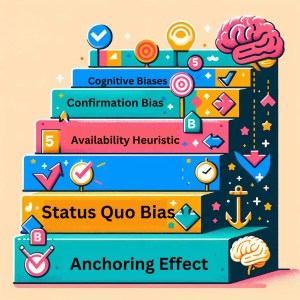- Exploring the Essence of Integrative Medicine: A Path to Whole-Person Wellness
- Introduction: Embracing the Holistic Approach
- Understanding Integrative Medicine
- The Integrative Approach to Healthcare
- Therapies and Practices in Integrative Medicine
- Integrative Medicine for Specific Conditions
- Implementing Integrative Medicine into Daily Life
- Challenges and Considerations in Integrative Medicine
- Conclusion: Integrative Medicine as a Pathway to Wellness
- Frequently Asked Questions about Integrative Medicine
- What is Integrative Medicine?
- How Does Integrative Medicine Differ from Conventional Medicine?
- What Types of Therapies are Used in Integrative Medicine?
- Is Integrative Medicine Covered by Insurance?
- How Do I Find a Qualified Integrative Medicine Practitioner?
- Can Integrative Medicine Help with Chronic Conditions?
- Are Complementary Therapies Safe?
- How Can I Incorporate Integrative Medicine into My Healthcare Routine?
- Resources for Further Reading and Research on Integrative Medicine
Exploring the Essence of Integrative Medicine: A Path to Whole-Person Wellness
Introduction: Embracing the Holistic Approach
In the realm of healthcare, a transformative movement is reshaping the way we approach wellness and healing. Integrative medicine, a holistic healthcare paradigm, merges the precision of conventional Western medicine with the personalized touch of alternative therapies. This approach recognizes the intricate tapestry of human health, asserting that true healing transcends the mere alleviation of physical symptoms to encompass the mental, emotional, and spiritual well-being of an individual.
The essence of integrative medicine lies in its whole-person approach. It’s a practice that looks beyond the immediate symptoms, seeking to understand the underlying causes of illness and discomfort. By doing so, it aims to foster an environment of healing that resonates with every aspect of a person’s life. This methodology acknowledges the complex interplay between various factors that contribute to health, advocating for a care strategy that is as diverse and multifaceted as the individuals it serves.
The objective of this article is to delve into the heart of integrative medicine, exploring its practices, benefits, and its increasingly pivotal role in contemporary healthcare. From the therapeutic relationships that form the foundation of care to the array of conventional and complementary therapies it employs, this exploration seeks to illuminate the pathways through which integrative medicine offers a more comprehensive, compassionate, and personalized approach to health and well-being. Join us as we embark on this journey, uncovering the principles that make integrative medicine a beacon of hope for those seeking a harmonious balance between body, mind, and spirit in their pursuit of optimal health.
Also check out our other great article The Integration of Traditional and Modern Medicine.

Understanding Integrative Medicine
Defining Integrative Medicine
Integrative Medicine (IM) represents a profound shift in the approach to healthcare, focusing on a healing-oriented model that considers the entire individual, encompassing all lifestyle aspects. Unlike conventional or alternative medicine, integrative medicine doesn’t prioritize one over the other but instead combines the best of both worlds. It seamlessly merges conventional Western medical treatments with alternative or complementary therapies such as acupuncture, yoga, and meditation. This blend ensures a more comprehensive care strategy, addressing not just the symptoms but the root causes of health issues.
Core Principles
The core principles of integrative medicine revolve around a partnership between patient and practitioner, emphasizing the healing process and recognizing the complex factors influencing health, wellness, and disease. These principles advocate for the appropriate use of both conventional and alternative methods to facilitate the body’s innate healing response, always favoring the most natural and less invasive interventions first. Integrative medicine stands on the foundation of good science, open to new paradigms and incorporating health promotion and illness prevention as key components. Importantly, it fosters a commitment to self-exploration and self-development among practitioners.
Scope and Services
Integrative medicine encompasses a wide array of therapies and services designed to treat the whole person—body, mind, and spirit. Services range from acupuncture, which can help with conditions like chronic pain and nausea, to massage therapy, which may boost mood and alleviate pain from various health issues. Mind-body practices such as meditation and resilience training offer additional support by easing blood pressure and pain, among other benefits. Furthermore, nutritional consultation, exercise recommendations, and stress management strategies play crucial roles in supporting individuals’ overall health and wellness.
The integrative approach is tailored to individual needs, with care teams working closely with patients and their healthcare providers to craft personalized treatment plans. This collaboration ensures that integrative practices not only complement conventional treatments but also align with each patient’s unique health goals.
Integrative medicine’s broad spectrum of services is evidence of its commitment to treating the whole person, recognizing that health is a multifaceted experience influenced by a myriad of factors. Through its holistic approach, integrative medicine seeks not just to treat illness but to enhance well-being and promote a balanced and healthy lifestyle.

The Integrative Approach to Healthcare
Patient and Practitioner Partnership
At the heart of integrative medicine lies the dynamic partnership between patient and practitioner. This relationship is characterized by mutual respect, deep listening, and shared decision-making. Unlike the traditional model where the practitioner often takes a directive role, in integrative medicine, both parties work collaboratively. Patients are encouraged to take an active role in their healing process, contributing their insights, preferences, and values to the care plan. This collaborative approach ensures that treatments are not only medically sound but also align with the patient’s lifestyle, beliefs, and wellness goals. This partnership is foundational, fostering an environment where healing is a shared journey, enhancing the efficacy of the treatment plan and promoting greater patient satisfaction and engagement.
Personalized Care Plans
Integrative medicine excels in crafting personalized care plans, which are tailored to address the unique health needs and goals of each individual. This customization goes beyond merely combining different therapies; it involves a thorough assessment of the patient’s health history, lifestyle, and personal preferences. By considering the whole person—body, mind, and spirit—integrative medicine practitioners can recommend a blend of conventional and complementary therapies that best suit the patient. These plans may include dietary changes, physical activity, stress reduction techniques, as well as conventional medical treatments when necessary. The goal is to create a care plan that not only addresses specific health issues but also promotes overall well-being and disease prevention.
Evidence-Based Practice
A cornerstone of integrative medicine is its commitment to evidence-based practice. Despite incorporating therapies outside the realm of conventional medicine, integrative medicine firmly grounds its approaches in scientific research. This ensures that all recommended therapies—be they conventional medications, acupuncture, massage, or dietary supplements—are supported by credible evidence demonstrating their safety and efficacy. Practitioners stay abreast of the latest research, continuously updating their practices to reflect the most current findings. This commitment to evidence not only enhances the quality of care but also builds trust with patients, reassuring them that their treatments are both safe and effective. By integrating scientific rigor with holistic care, integrative medicine offers a comprehensive approach to health and healing.
Integrative medicine’s approach, emphasizing partnership, personalized care, and evidence-based practice, marks a significant evolution in healthcare. It offers a more nuanced and holistic view of health, one that recognizes the complex interplay of factors that influence well-being. This model not only addresses immediate health concerns but also lays the foundation for sustained health and wellness, empowering individuals to lead healthier, more balanced lives.

Therapies and Practices in Integrative Medicine
Conventional vs. Complementary Therapies
Integrative medicine is distinguished by its unique approach to combining conventional and complementary therapies, creating a harmonious blend that enhances patient care. Conventional therapies often refer to the standard treatments widely accepted and practiced by the medical community, such as pharmaceuticals and surgery. Complementary therapies, on the other hand, include practices and treatments outside of mainstream medicine, such as acupuncture, yoga, and herbal remedies.
The power of integrative medicine lies in its ability to bring these two worlds together, selecting the best from each according to the patient’s specific needs and conditions. For example, a patient undergoing cancer treatment might receive chemotherapy (a conventional therapy) alongside acupuncture and nutrition counseling (complementary therapies) to manage side effects and improve overall well-being. This integrative approach ensures that patients receive holistic care that addresses not just the disease but also the side effects of treatment, stress, and lifestyle factors that contribute to health.
Highlighting Key Therapies
Several key therapies often feature prominently in integrative medicine due to their effectiveness and the breadth of conditions they can address:
- Acupuncture: Used for pain relief, stress reduction, and the treatment of various conditions such as migraines and arthritis.
- Massage Therapy: Offers benefits including reduced tension, improved circulation, and support for muscle recovery.
- Herbal Medicine: Utilizes plant-based remedies to treat a wide range of health issues, carefully chosen to complement conventional treatments and support the body’s healing process. See our article on Medical Marijuana and Essential Oils.
- Mind-Body Practices: Includes meditation, yoga, and biofeedback techniques that help patients reduce stress, improve mental clarity, and enhance physical health. Also check out our free Health and Wellness Toolkit
Each of these therapies is selected based on a thorough evaluation of the patient’s condition, preferences, and overall health goals, ensuring a personalized approach to care.
Case Studies and Success Stories
Real-life case studies and success stories underscore the transformative impact of integrative medicine. For instance, patients with chronic pain conditions such as fibromyalgia have found significant relief through a combination of conventional medical treatments and acupuncture, often resulting in improved quality of life and reduced reliance on pain medications. Similarly, individuals dealing with anxiety and depression have benefited from the integration of mind-body practices like meditation and mindfulness alongside psychotherapy and, when necessary, medication. These examples highlight how integrative medicine not only addresses specific health issues but also supports the overall well-being of patients, leading to more sustainable and profound healing outcomes.
Through its comprehensive and patient-centered approach, integrative medicine offers a more nuanced and effective way of addressing health challenges, combining the best of conventional and complementary therapies to foster optimal health and healing.

Integrative Medicine for Specific Conditions
Chronic Disease Management
Integrative medicine offers a comprehensive approach to the management and prevention of chronic diseases by addressing not just the physical symptoms but also the underlying lifestyle and environmental factors that contribute to these conditions. Through a combination of conventional medical treatments and complementary therapies, integrative medicine aims to optimize health outcomes, enhance the quality of life, and prevent disease progression. For instance, in the management of diabetes, integrative approaches may include conventional medications to control blood sugar levels, coupled with nutritional counseling, exercise, and stress management techniques to address the root causes of the disease and improve overall well-being. Similarly, for heart disease, alongside medication and surgical interventions, lifestyle modifications such as diet changes, physical activity, and mindfulness practices are emphasized to reduce risk factors and promote heart health.
Mental Health Support
The role of integrative medicine in supporting mental health and emotional well-being is significant and growing. Recognizing the complex interplay between the mind and body, integrative approaches to mental health focus on holistic treatments that encompass both conventional therapies, such as psychotherapy and medication, and complementary practices, including acupuncture, yoga, and meditation. This integrated approach aims to not only alleviate symptoms but also address the underlying causes of mental health conditions, offering patients tools and strategies to manage stress, improve resilience, and enhance their overall quality of life. By treating the individual as a whole, integrative medicine provides a more nuanced understanding of mental health and offers diverse modalities to support healing and recovery.
Preventive Care and Wellness
Integrative medicine places a strong emphasis on health promotion and illness prevention through lifestyle changes and preventive practices. This proactive approach encourages individuals to take charge of their health long before disease occurs, focusing on nutrition, physical activity, stress reduction, and the cultivation of a balanced lifestyle. Integrative practitioners work closely with patients to develop personalized wellness plans that incorporate dietary advice, exercise regimens, mindfulness practices, and other holistic strategies aimed at boosting the immune system, enhancing physical fitness, and improving emotional resilience. By prioritizing preventive care, integrative medicine aims to reduce the risk of chronic diseases, support optimal health, and foster a culture of wellness that empowers individuals to lead healthier, more fulfilling lives.
Integrative medicine’s holistic and patient-centered approach to chronic disease management, mental health support, and preventive care offers a compelling model of healthcare that prioritizes the individual’s overall well-being. By integrating the best of conventional and complementary therapies, it provides a nuanced and effective strategy for addressing a wide range of health conditions, promoting long-term wellness, and improving quality of life.

Implementing Integrative Medicine into Daily Life
Starting with Integrative Medicine
Incorporating integrative medicine into your healthcare regimen begins with understanding its holistic approach, which combines conventional and complementary therapies to address your health comprehensively. A good starting point is to assess your health goals and any current conditions you might be facing. Then, explore various integrative practices that align with your needs, such as meditation, yoga, acupuncture, or nutritional counseling. Engaging with resources like the Mayo Clinic and the Cleveland Clinic can provide a wealth of information on how these practices can support your well-being.
Finding the Right Practitioners
Finding qualified integrative medicine practitioners is crucial for a successful journey toward holistic health. Look for professionals with credentials in both conventional healthcare and complementary modalities. Many integrative medicine providers include physicians, chiropractors, acupuncturists, and nutritionists, among others. It’s important to seek practitioners who emphasize a partnership approach to care, ensuring that you’re actively involved in your health decisions. Professional directories from reputable sources like the Mayo Clinic can be a helpful tool in your search for the right integrative healthcare team.
Lifestyle Changes for Holistic Health
Adopting lifestyle changes that support holistic health is at the core of integrative medicine. This includes a balanced diet rich in whole foods, regular physical activity, stress management techniques, and adequate sleep. Mind-body practices such as meditation and yoga not only reduce stress but also promote mental clarity and emotional stability. Consider incorporating supplements and herbs, under the guidance of your healthcare provider, to address specific health concerns and enhance your overall wellness. Remember, the aim is to create a sustainable, healthy lifestyle that supports your physical, mental, and spiritual well-being.
Integrative medicine’s strength lies in its personalized, evidence-based approach to health and wellness, emphasizing the importance of a strong patient-practitioner partnership, tailored care plans, and lifestyle modifications that address the whole person. By actively participating in your care and making informed lifestyle choices, you can harness the full benefits of integrative medicine to improve your health and quality of life.

Challenges and Considerations in Integrative Medicine
Navigating Insurance and Costs
The financial aspects of seeking integrative care, including insurance coverage and out-of-pocket costs, present a significant challenge for many patients. Insurance coverage for integrative medicine is often limited, with acupuncture, chiropractic care, and therapeutic massage being among the few treatments commonly covered. Before selecting an integrative medicine, doctor or engaging in specific therapies, it’s essential to check with your insurance provider to understand what your plan covers, the extent of the coverage, and any out-of-pocket costs you may incur.
Safety and Efficacy Concerns
Safety and efficacy are common concerns when considering complementary therapies. While many integrative medicine practices such as chiropractic adjustments, acupuncture, and biofeedback have research supporting their effectiveness, particularly in managing conditions like chronic pain and stress-related issues, they don’t work in every case. It’s crucial for patients to research the risks and benefits of complementary therapies and consult their healthcare team to ensure these treatments are safe and appropriate for their specific conditions. Typically, insurance may require a diagnosis of a specific condition for coverage and may cap the number of visits per year.
The Future of Integrative Medicine
The future of integrative medicine looks promising as more insurance companies begin to recognize the value of covering at least some costs for widely accepted complementary and integrative methods. This trend points towards a growing integration of these therapies into mainstream healthcare. As the body of research into the efficacy and safety of complementary therapies continues to grow, and as patients increasingly seek holistic approaches to health and wellness, we can expect integrative medicine to play a more significant role in healthcare. The key to its evolution will be the continued emphasis on evidence-based practices and the integration of these therapies into conventional medical treatments in a way that prioritizes patient safety and overall well-being.
Integrative medicine’s blend of conventional and complementary approaches offers a holistic path to health, emphasizing patient-centered care and the importance of lifestyle factors in promoting well-being. As the field evolves, the hope is that more people will have access to comprehensive care that addresses the full spectrum of their health needs.

Conclusion: Integrative Medicine as a Pathway to Wellness
Integrative medicine represents a significant shift in the way we approach health and wellness, blending the best of conventional medical practices with holistic and complementary therapies. This approach not only treats the symptoms of a disease but also addresses the root causes, considering the patient’s overall well-being, including their physical, mental, emotional, and spiritual health.
The role of integrative medicine in healthcare is evolving, with a growing acceptance and integration of holistic practices into mainstream healthcare. This shift reflects a broader understanding of health as a multi-dimensional state, where wellness is achieved through a balanced lifestyle, preventive care, and personalized treatments.
As we look to the future, integrative medicine offers a promising path to comprehensive health and well-being. By embracing a proactive approach to health, individuals can leverage the best of both conventional and complementary therapies to achieve optimal wellness. This approach empowers patients to take an active role in their health journey, making informed decisions about their care and lifestyle.
We encourage everyone to consider an integrative approach to health and wellness. For those interested in exploring this further and connecting with like-minded individuals, join our forum at Simply Sound Society. This community provides a space for discussions on integrative health practices, sharing experiences, and supporting each other in our wellness journeys. Visit forum.simplysoundadvice.com to learn more and become part of a community dedicated to holistic health and well-being.
Embracing integrative medicine is about more than just treating illness—it’s about cultivating a life of wellness, balance, and vitality. Take the first step on this rewarding path today.

Frequently Asked Questions about Integrative Medicine
What is Integrative Medicine?
Integrative Medicine (IM) is a holistic approach to health that combines conventional medical treatments with complementary and alternative therapies. It focuses on treating the whole person—body, mind, and spirit—rather than just the symptoms of disease.
How Does Integrative Medicine Differ from Conventional Medicine?
While conventional medicine often focuses on treating symptoms with medications or surgery, integrative medicine aims to heal the root causes of an illness. It incorporates a broader understanding of health, including lifestyle and environmental factors, and uses a wide range of therapies for comprehensive care.
What Types of Therapies are Used in Integrative Medicine?
Integrative medicine may include therapies such as acupuncture, massage therapy, herbal medicine, nutrition counseling, and stress reduction techniques. The specific therapies used depend on the individual’s unique health needs and goals.
Is Integrative Medicine Covered by Insurance?
Coverage varies by insurance plan and therapy. Some integrative therapies, like acupuncture and chiropractic care, are more likely to be covered than others. It’s essential to check with your insurance provider to understand what your plan covers.
How Do I Find a Qualified Integrative Medicine Practitioner?
Look for practitioners with proper credentials and training in both conventional healthcare and their specialty area. Many integrative medicine practitioners are licensed in areas like acupuncture, chiropractic, or nutrition. It’s also helpful to seek recommendations from trusted healthcare professionals or patient reviews.
Can Integrative Medicine Help with Chronic Conditions?
Yes, integrative medicine can be particularly beneficial for managing chronic conditions such as pain, fatigue, and stress-related disorders. It focuses on improving quality of life through pain relief, stress management, and promoting overall well-being.
Are Complementary Therapies Safe?
While many complementary therapies are considered safe, it’s crucial to use them under the guidance of a knowledgeable healthcare provider. Some therapies may interact with conventional medications or not be suitable for everyone. Always discuss any new therapies with your healthcare team to ensure they’re safe for you.
How Can I Incorporate Integrative Medicine into My Healthcare Routine?
Start by discussing your interest in integrative medicine with your healthcare provider. Together, you can explore which therapies may be beneficial for you and develop a personalized care plan that integrates these therapies into your overall health strategy.
For more information on integrating holistic practices into your health and wellness routine, visit forum.simplysoundadvice.com. This community is a resource for sharing experiences, discussing therapies, and supporting each other in your journey towards holistic health.
Resources for Further Reading and Research on Integrative Medicine
Integrative Medicine Foundations and Research
- National Center for Complementary and Integrative Health (NCCIH): This is the U.S. government’s lead agency for scientific research on complementary and integrative health approaches. It offers comprehensive information on various therapies, their effectiveness, and safety.
- Visit: nccih.nih.gov
- The Andrew Weil Center for Integrative Medicine: Founded by Dr. Andrew Weil, this center focuses on training, research, and information dissemination on integrative medicine.
- Integrative Medicine: A Clinician’s Journal (IMCJ): This journal provides practitioners with information on integrating alternative medicines into patient care.
- Visit: imjournal.com
Insurance and Integrative Medicine
- American Cancer Society – Integrative Medicine Coverage: Offers guidance on how patients can navigate insurance coverage for complementary and integrative therapies.
- Visit: cancer.org
- Consumer Reports – Health Insurance That Pays for Wellness: This article explores how some health insurance plans are covering wellness and preventive care approaches.
- Visit: consumerreports.org
Finding a Practitioner
- Academy of Integrative Health & Medicine (AIHM): A global interprofessional integrative health association working to transform health care. The site includes a directory of practitioners.
- Visit: aihm.org
- American Board of Integrative Medicine® (ABOIM®): Provides information on board-certified integrative medicine practitioners.
- Visit: abpsus.org
Therapies and Treatments
- Mayo Clinic – Integrative Medicine and Health: Offers a broad overview of integrative health services and therapies available, emphasizing evidence-based approaches.
- Visit: mayoclinic.org
- Cleveland Clinic – Center for Integrative & Lifestyle Medicine: Details the various integrative medicine services offered, focusing on patient-centered care.
- Visit: my.clevelandclinic.org
General Wellness and Lifestyle
- MindBodyGreen: Focuses on providing content related to wellness trends, including articles on nutrition, fitness, and mental health from an integrative perspective.
- Visit: mindbodygreen.com
- Well+Good: A lifestyle website with a section dedicated to holistic health practices, offering advice on everything from meditation techniques to the benefits of different diets.
- Visit: wellandgood.com
These resources can serve as a starting point for individuals interested in exploring the world of integrative medicine further, whether for personal enrichment or professional development.
- Deciphering Healthcare Jargon: Medical Insurance Terminology
- Boost Your Immune System with Just Thrive Probiotic Gummies
- Boost Your Immune System: The Ultimate Guide
- Breaking Free: A Journey Through Addiction and Recovery
- Entitlement and How It Could Be Wrecking Your Happiness
- Exploring Healthy Fast-Food in 2024: The Surprising Truth
















My brother recommended I might like this web site He was totally right This post actually made my day You cannt imagine just how much time I had spent for this information Thanks
Thank you for your wonderful comment. I am so glad you enjoyed this article!